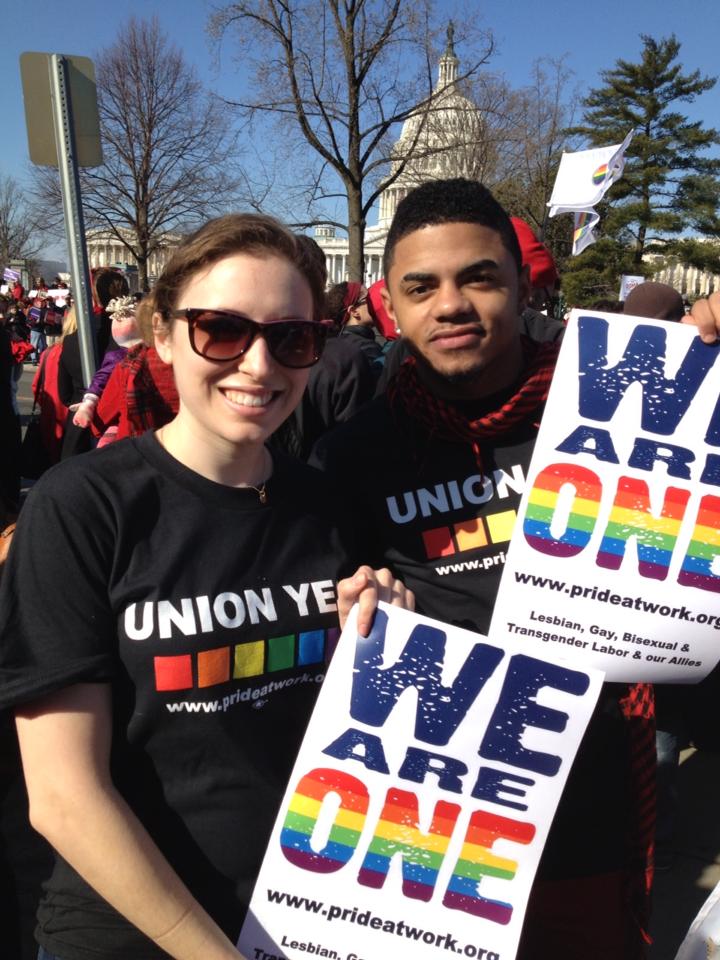
The strongest protections for lesbian, gay, bisexual, transgender and queer working people are found in a union contract. Working people in unions have fought hard to make sure that employers cannot discriminate against people. This includes helping pass laws that protect LGBTQ working people, especially transgender people.
Transgender people are individuals whose gender identity and expression differs from what’s socially expected of the sex they were assigned at birth. This includes people who identify as men or women, as well as genderqueer and gender nonconforming individuals, who experience a gender identity that falls outside of the traditional male-female binary.
Many transgender people transition to live their every day life as the gender they identify with. Transitioning is a different process for everyone—it may involve social changes (such as going by a new first name), medical steps and changing identification documents—and many transgender people cannot or do not wish to go through any changes at all.
Unfortunately, because many workplaces have separate restroom facilities for men and women, questions can arise from management, co-workers and clients about which facilities certain employees should use. This can create a hostile environment, not just for visibly transgender people, but for anyone who does not fit neatly into strict male or female gender presentations. Imagine a woman, who is not transgender, being questioned in the women’s restroom for wearing coveralls and having short hair. How others perceive her should not make her open to harassment.
In fact, employers have a legal duty to protect all their employees, regardless of whether or not they conform to gender stereotypes, from any act or threat of physical violence, harassment, intimidation or other threatening disruptive behavior that occurs at the worksite. This includes making sure that all employees, including transgender employees, have access to restrooms that correspond best to their gender identity. Restrictions that prevent employees from using the restroom that is consistent with their gender identity, or segregating them from other workers, singles those employees out and may make them fear for their physical safety.
A person who is transgender should be allowed to determine the most appropriate and safest restroom option. No employee should be required to use a segregated facility apart from other employees because of their gender identity or transgender status. Occupational Safety and Health Administration standards provide similar guidance because employees should never have to use facilities that are an unreasonable distance or travel time from the worksite, which may cause significant health problems.
A strong union contract should protect transgender working people at every point of their transition. Work with your local union leadership to ensure your contract fully includes LGBTQ workers and families in every aspect, from general workplace non-discrimination to family benefits. And, of course, our LGBTQ constituency group, Pride At Work, is an excellent resource for assistance on this or any other issue that pertains to LGBTQ working people.

